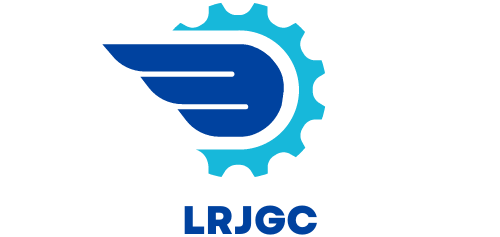Landing a project management internship can be a game-changer for anyone looking to break into the field. These internships offer invaluable hands-on experience, allowing interns to learn the ropes of managing projects, coordinating teams, and meeting deadlines in a real-world setting. It’s a unique opportunity to develop essential skills that employers crave.
In today’s competitive job market, a project management intern can stand out by mastering both the technical and soft skills required to excel. From understanding project life cycles to honing communication and leadership abilities, these internships serve as a crucial stepping stone. Whether they’re managing timelines or facilitating team collaboration, interns gain a comprehensive understanding of what it takes to succeed in project management.
Project Management Intern
 A project management intern assists in planning, executing, and closing projects. They support senior project managers by conducting research, preparing documents, and communicating with stakeholders. Interns often track progress, manage schedules, and address issues that arise during the project lifecycle.
A project management intern assists in planning, executing, and closing projects. They support senior project managers by conducting research, preparing documents, and communicating with stakeholders. Interns often track progress, manage schedules, and address issues that arise during the project lifecycle.
Duties include organizing meetings, documenting minutes, and updating project plans. They also learn budgeting, resource allocation, and risk management. By collaborating with various teams, interns gain insights into diverse project aspects.
Key Responsibilities and Tasks
Typical Daily Activities
Project management interns perform tasks that keep projects on track. They organize meetings, prepare agendas, and take minutes. They update project plans using software tools and track progress. Interns communicate with team members to ensure everyone stays informed. By generating status reports, they support senior managers in decision-making. Additionally, they handle administrative tasks like scheduling and maintaining project documentation.
Long-term Projects
Project management interns often contribute to significant projects. They assist in planning phases by conducting research and gathering data. During execution, they monitor timelines, budgets, and resources, ensuring alignment with objectives. Interns participate in risk management by identifying potential issues and proposing solutions. By documenting project outcomes and lessons learned, they help improve future project processes. These responsibilities provide deep insights into project lifecycle management.
Essential Skills and Qualifications
Educational Background
Candidates typically possess a bachelor’s degree or are in the process of completing one. Common fields include business administration, management, engineering, or related studies. Coursework in project management, statistics, and organizational behavior can be especially beneficial. Some students may also pursue specialized project management certifications, such as PMP or CAPM, to enhance their qualifications.
Technical & Soft Skills
 Technical proficiency is crucial for handling various project management tools and software. Proficiency in Microsoft Project, Excel, and other project management software is often required. Understanding methodologies like Agile and Scrum enhances an intern’s ability to work on diverse projects. Additionally, basic knowledge in budgeting, scheduling, and data analysis supports day-to-day tasks and long-term planning.
Technical proficiency is crucial for handling various project management tools and software. Proficiency in Microsoft Project, Excel, and other project management software is often required. Understanding methodologies like Agile and Scrum enhances an intern’s ability to work on diverse projects. Additionally, basic knowledge in budgeting, scheduling, and data analysis supports day-to-day tasks and long-term planning.
Soft skills are essential for collaboration, problem-solving, and effective communication. Strong verbal and written communication skills facilitate clear interaction with team members and stakeholders. Time management helps them prioritize tasks efficiently, while problem-solving abilities allow them to address project challenges proactively. Emotional intelligence supports teamwork, making it easier to navigate interpersonal dynamics.
Tips for Success as a Project Management Intern
Effective Time Management
 Effective time management is essential for handling multiple tasks and deadlines. Interns should prioritize tasks by creating a daily or weekly schedule, focusing on high-impact activities first. Using project management tools like Trello or Asana can aid in tracking progress and deadlines. It’s crucial to block out distractions and allocate specific time slots for uninterrupted work. Regular check-ins with supervisors help ensure alignment with project goals and deadlines.
Effective time management is essential for handling multiple tasks and deadlines. Interns should prioritize tasks by creating a daily or weekly schedule, focusing on high-impact activities first. Using project management tools like Trello or Asana can aid in tracking progress and deadlines. It’s crucial to block out distractions and allocate specific time slots for uninterrupted work. Regular check-ins with supervisors help ensure alignment with project goals and deadlines.
Continuous learning and improvement keep interns updated with industry trends and best practices. They should leverage resources such as industry blogs, webinars, and online courses to deepen their knowledge in project management methodologies like Agile or Waterfall. Seeking feedback from experienced team members enhances skills and provides new perspectives.
Learning the Ropes of Managing Projects
Landing a project management internship is a crucial step for anyone aspiring to enter the field. These internships offer invaluable hands-on experience, helping interns master both technical and soft skills that are essential for career advancement. By taking on responsibilities such as planning, executing, and closing projects, interns gain practical insights into the intricacies of project management.

